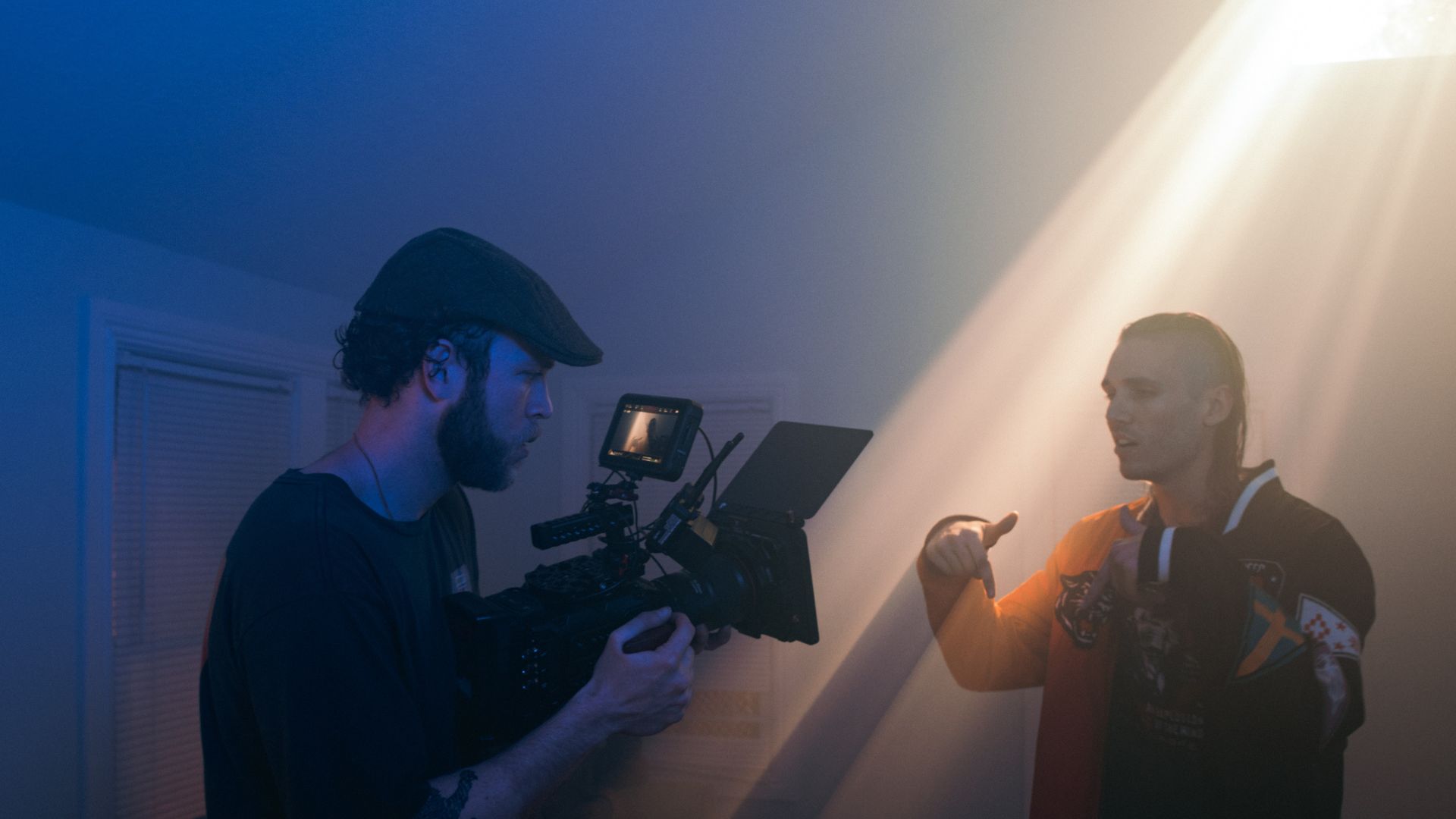Plot twists are one of the most captivating elements of storytelling in film. They have the power to completely change the way we view the entire narrative, often leaving audiences stunned, questioning what they just watched, and even prompting them to revisit the film with fresh eyes. A good plot twist is a skillful trick of storytelling—a sudden change in direction that transforms the film and gives a new perspective on everything that came before. From classic shockers to mind-bending twists, some films have elevated this storytelling device to an art form, leaving a lasting impact on audiences.
💡Spoiler Warning! The following content contains major plot details and spoilers for the films discussed. If you haven’t seen the movies yet and want to experience the twists and turns for yourself, we recommend reading this article after watching! Proceed at your own risk!
In this article, we’ll explore some of the most memorable and game-changing plot twists in film history, and discuss why they have become such integral parts of cinematic storytelling:
- Classic Plot Twists: Redefining Audience Expectations
- Psychological thrillers and mind-bending twists
- Twists in modern cinema: New approaches to surprises
- The enduring appeal of plot twists

Classic plot twists: Redefining audience expectations
Some plot twists are so iconic that they’ve become part of the cultural lexicon. The twists in films like The Sixth Sense (1999) and The Others (2001) are perfect examples of how a carefully executed twist can reframe the entire narrative and leave a lasting impression.
The Sixth Sense, directed by M. Night Shyamalan, is perhaps one of the most famous examples of a film where the twist is at the heart of its success. The film follows a troubled young boy, played by Haley Joel Osment, who can see and communicate with dead people. Bruce Willis stars as a psychologist trying to help him, all while hiding a personal emotional struggle. The film builds slowly, creating tension with every interaction, leading audiences to believe one thing while subtly planting the seeds for a jaw-dropping revelation. The twist, which reveals that Willis’ character is actually dead the whole time, redefines the meaning of everything that came before it. It’s a twist that takes the audience completely by surprise, forcing them to reassess the entire film. Its effectiveness lies not just in the reveal itself but in the way the film is crafted to make you believe one thing, only to turn it on its head in the final moments.
Similarly, The Others, directed by Alejandro Amenábar, uses the classic gothic ghost story formula, but with a twist that completely alters the narrative. Nicole Kidman plays a mother who is living in a secluded house with her two children, who are sensitive to light. The film builds an eerie atmosphere, leading viewers to assume that the house is haunted by spirits. However, in the final moments, it’s revealed that the family themselves are the ghosts, and the ‘living’ people in the house are the real inhabitants. This revelation completely flips the entire film on its head, turning the audience’s understanding of the story from a haunting to a tragedy. Both The Sixth Sense and The Others prove that a well-executed twist can make the entire film unforgettable, as it reshapes how we interpret the story and its characters.
Psychological thrillers and mind-bending twists
The 1990s and 2000s saw a rise in psychological thrillers that pushed the boundaries of plot twists, often manipulating not just the story but also the mind of the viewer. Films like Fight Club (1999) and Gone Girl (2014) use twists to challenge our perceptions of the characters and the events unfolding, leaving us with a sense of uncertainty that lingers long after the credits roll.
In Fight Club, directed by David Fincher and based on the novel by Chuck Palahniuk, the twist comes when we realise that the narrator’s alter ego, Tyler Durden (played by Brad Pitt), is a figment of his imagination. The film presents Tyler as a charismatic and anarchistic figure who encourages the narrator to rebel against society’s expectations. As the story unfolds, we begin to see cracks in the narrator’s psyche, and in the film’s climactic moment, it’s revealed that Tyler is a representation of the narrator’s split personality. This revelation forces the audience to reconsider everything they’ve witnessed, and the film’s chaotic energy takes on an entirely new meaning. Fight Club shows how a twist can not only alter the plot but also the film’s thematic significance, providing a complex, psychological narrative that invites viewers to question their own perceptions of reality.
Gone Girl, directed by David Fincher and based on Gillian Flynn’s novel, is another example of a mind-bending twist that completely reshapes the story. The film follows the mysterious disappearance of Amy Dunne (Rosamund Pike) and the subsequent media frenzy that surrounds her husband, Nick (Ben Affleck), as he becomes the prime suspect. As the story progresses, we realise that Amy has staged her own disappearance in order to frame Nick for her murder, revealing her to be a manipulative and calculating character. This twist is not only shocking but also forces the audience to reconsider our perceptions of gender roles, marriage, and the media’s portrayal of crime. Gone Girl is a masterclass in how a plot twist can elevate a story, turning a simple mystery into a deeper exploration of manipulation, deceit, and the complexities of relationships.

Twists in modern cinema: New approaches to surprises
In contemporary cinema, directors continue to push the boundaries of plot twists, introducing new methods of surprise that go beyond traditional shock reveals. Films like Shutter Island (2010) and Parasite (2019) show how plot twists can not only change the narrative but also challenge our understanding of societal issues.
Shutter Island, directed by Martin Scorsese, is a psychological thriller that plays with the audience’s perception of reality. The film follows a U.S. Marshal, Teddy Daniels (Leonardo DiCaprio), investigating the mysterious disappearance of a patient from a mental institution. As the film progresses, Daniels uncovers more bizarre and unsettling details, leading viewers to believe one thing. However, in the final twist, it’s revealed that Daniels is actually a patient at the institution, and the entire investigation has been a construct of his mind as he grapples with guilt and trauma. This twist not only redefines the entire film but also forces us to question the reliability of our own perceptions, leaving us with a sense of unease and ambiguity.
Similarly, Parasite, directed by Bong Joon-ho, uses a plot twist to explore class divides and the lengths people will go to in order to escape poverty. The film starts as a dark comedy about a poor family infiltrating a wealthy household, but in a shocking turn of events, the film takes a darker, more sinister direction. The twist reveals a hidden basement where the previous housekeeper’s husband has been living for years, challenging the audience’s assumptions about the family dynamics and the social commentary at the heart of the film. Parasite shows how a well-executed twist can serve not just as a narrative device but also as a means of delivering a powerful message about societal inequality.
The enduring appeal of plot twists
Plot twists remain one of the most effective storytelling tools in cinema, allowing filmmakers to surprise and engage audiences in unexpected ways. From the shock reveals of classic films like The Sixth Sense and The Others to the psychological depth and social commentary found in modern thrillers like Fight Club and Parasite, plot twists continue to be a hallmark of great filmmaking.
Let’s recap:
- Plot twists are a captivating storytelling element that reshape a film’s narrative, keeping audiences engaged and prompting them to re-evaluate the story.
- Films like The Sixth Sense and The Others redefined audience expectations with shocking twists that changed the entire perspective of the narrative.
- Movies like Fight Club and Gone Girl use twists to challenge the viewer’s understanding of the characters and manipulate their perceptions, often exploring deeper psychological themes.
- In films like Shutter Island and Parasite, twists go beyond narrative surprises, introducing complex societal themes and altering the audience’s understanding of characters and themes.
- The effectiveness of a well-executed twist lies in its ability to surprise, reshape narratives, and deepen themes, maintaining its relevance and impact in modern cinema.
The power of a well-crafted plot twist lies not only in its ability to shock and surprise but also in its ability to reshape the way we understand a story, its characters, and its themes. Whether they’re psychological, emotional, or purely narrative-driven, plot twists remain a compelling element that keeps audiences coming back for more.
“Great plot twists don’t just change the story; they change the way we see the world within it, leaving us with a deeper understanding long after the credits roll.”








